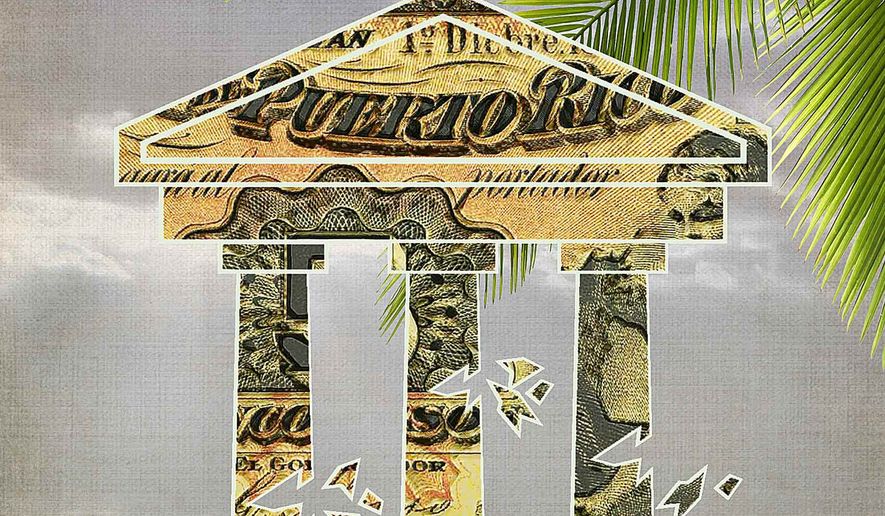OPINION:
Puerto Rico is facing a financial crisis because its economy is not growing, and financial and economic reforms are needed to change the situation. Years of corrupt and inefficient state-run enterprises, combined with a taxation and regulatory structure that stifles economic activity, have led to a stagnant economy in this U.S. territory. The government of the Commonwealth is asking Congress to grant it relief in the form of Chapter 9 bankruptcy, a remedy that will not only leave the crisis unsolved, but also fail to address its root causes.
Puerto Rico has accumulated more than $70 billion in public debt, and recently defaulted on $37 million in bond payments. The Commonwealth’s debt is now more than $15,000 per capita, which is 10 times higher than that of any of the 50 states. Last July, Puerto Rico’s governor declared the debt unpayable. Only through strong economic growth can the debt be paid and the problems that lead to this crisis be remedied, not through bankruptcy.
Bankruptcy will increase the Commonwealth’s borrowing costs by decreasing its credit rating for years to come. This increase will only cost the taxpayers far more for the financing of Puerto Rico’s debt. Bankruptcy will severely discourage private investment and cause enormous opportunity costs to the economy. Bankruptcy will also not do anything to reform the government, economy and financial system of the Commonwealth.
The Commonwealth needs to help itself by pursuing a course of reforms to strengthen its economy and become more business-friendly. Puerto Rico can make its permitting process and regulatory system more efficient to reduce the burden on businesses. The Commonwealth can reduce and reform many needless regulations to allow more businesses to succeed. Additionally, the Commonwealth can reform its welfare system so that it provides more incentives for citizens to seek employment in the economy rather than receive very generous welfare benefits. Puerto Rico can also reform and restructure its corrupt and mismanaged state-run enterprises as well.
Congress will only condone and enable the policy decisions that have helped bring about the crisis by granting Puerto Rico Chapter 9 bankruptcy. The best way Congress can help the Commonwealth is to reject bankruptcy and encourage Puerto Rico to help itself through much-needed reforms.
There are ways Congress can help Puerto Rico without enabling poor economic decisions with bankruptcy. It can exempt the Commonwealth from the Jones Act which, by requiring maritime commerce between any two points in the United States to be transported by U.S.-built and -operated ships, essentially prevents the Commonwealth from trading freely with the U.S. mainland. Congress can also exempt Puerto Rico from the federal minimum wage of $7.25 per hour and allow the Commonwealth, which has comparatively lower prices and wages, to set its own minimum. Currently, the $7.25 minimum wage in Puerto Rico is 77 percent of the median wage of $9.42, whereas the minimum in the states is only 40-50 percent of the median.
Congress should not grant any form of bailout, enhanced welfare or bankruptcy when what is needed is key financial and structural reforms that will allow the Commonwealth’s economy to grow, creating long-term prosperity that will lift Puerto Rico out of the current crisis and prevent it from falling into such a crisis again in the future. Congress can do what’s right and uphold the principles that work in the real world by rejecting the call for bankruptcy in favor of reforms and prosperity for the future of Puerto Rico.
• Dean Chambers is a conservative columnist and freelance writer.




Please read our comment policy before commenting.